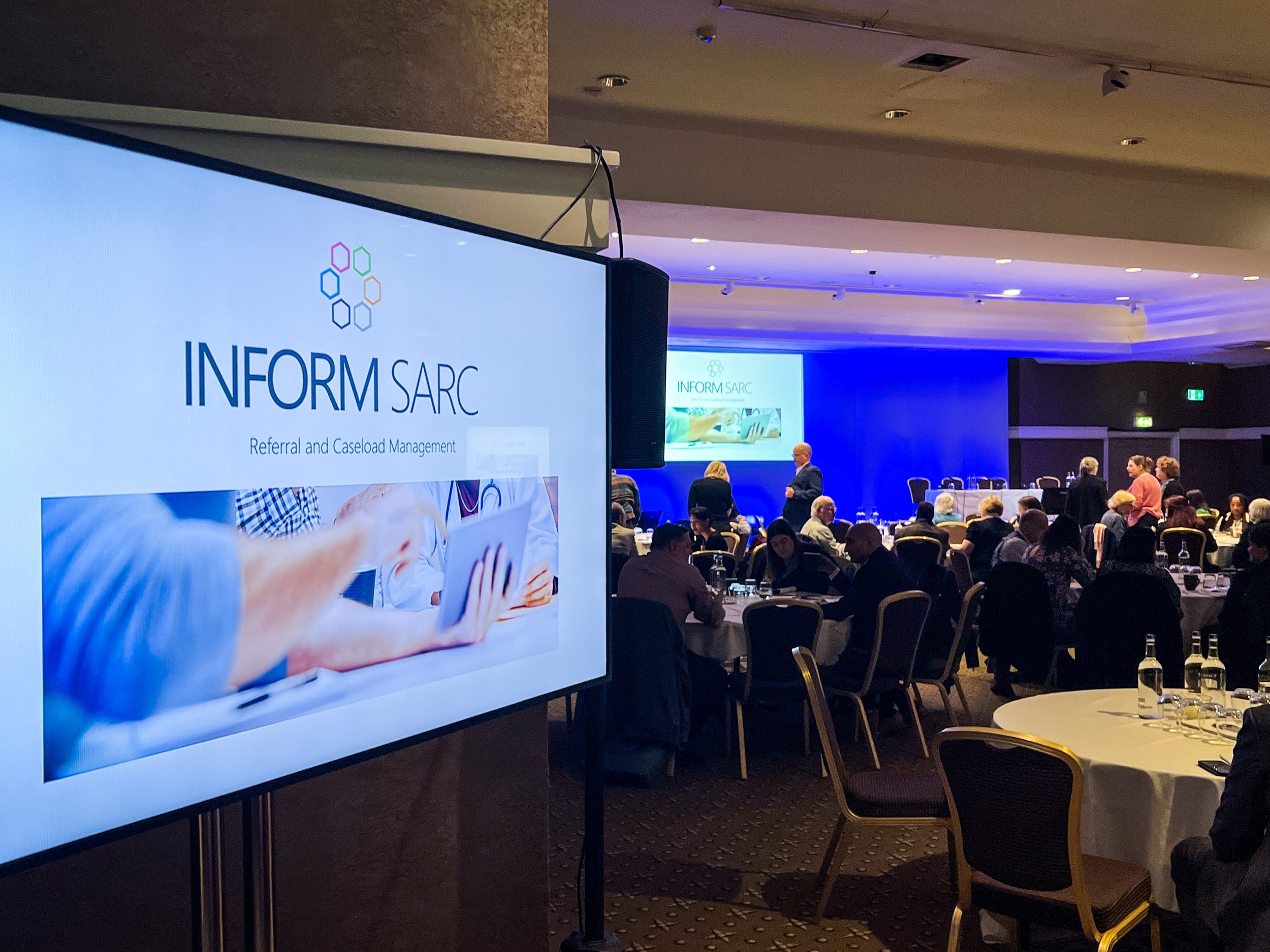BLOG: Four ways technology can support the future of SARC provision
We recently attended St Mary’s SARC annual conference. After the Covid hiatus, it was a great opportunity to meet inspiring professionals and survivors and learn more about the current and emerging issues facing SARC services.
The conference’s theme was Protecting Children in a Digital Age, which opened with a keynote speech from The Children’s Commissioner. In it, she recognised how the ‘care, empathy and diligence’ shown by SARC services can be ‘transformative, indeed lifesaving’ for children who have been victims of sexual abuse.
She was of course right.
SARC services offer vital healthcare and support, not just to children, but to people of all ages, genders, and backgrounds who have been victims of rape and sexual abuse.
And while the digital age creates additional opportunity for abuse to occur, technology is playing an increasingly important role in both preventing abuse and supporting SARCs to deliver better care.
After speaking with a range of professionals during the conference, here are four ways we think technology like Inform SARC will support enhanced SARC provision in the future:
1) Early identification and intervention
Brook gave a presentation during the conference about the benefits of using their Spotting the signs of CSE proforma, developed in partnership with the British Association of Sexual Health and HIV.
Standardising assessment criteria supports services to ask the right questions and capture the right information during conversations with young people around CSE. Its purpose is to aid early identification of risk so that timely and appropriate intervention can be taken.
Technology can take this one step further.
By digitising the proforma it is possible for professionals to complete assessments with their client, while cross referencing information from previous interactions in split screen to understand the bigger picture, identify patterns that indicate potential/ongoing risk sooner and implement appropriate intervention.
While in some systems (and certainly if services are reliant on paper-based process), professionals need to dig through different areas to find and view previous assessments and attempt to read them while in consultation with a client, Inform’s split screen functionality allows all assessment data to be viewed simultaneously.
This enables professionals to pick up on any issues more quickly and easily in support of their client and enhances efficiencies at a service level too.
The conference was held at Manchester’s stunning Midland Hotel.
2) Facilitating trauma-informed care
Technology has an important role to play in facilitating trauma-informed care by offering SARC clients increased choice and autonomy over how they receive their care and associated communication, and in helping to minimise instances of re-traumatisation.
Remote care, online information exchange and patient self-management is already transforming the way sexual health and HIV services deliver care – from online appointment booking to STI testing and treatment and condoms by post.
The same technology has the potential to empower survivors of rape and sexual abuse to choose how to interact with SARC services based on what feels most comfortable for them.
This could mean spending less time in the centre in favour of virtual consultations, where appropriate. Or it could mean receiving messages about appointments or test results via a secure, client-facing online platform like our Personal Health Record but developed to speak to the bespoke needs of SARCs and the people they support.
Technology can also facilitate enhanced trauma-informed SARC provision by reducing duplication. Instead of asking for the same information – that can be triggering for survivors of sexual abuse to disclose – Inform SARC can cascade data captured in once place to other relevant areas of the system; pre-populating data fields and removing the need for questions to be repeated.
3) Maintaining compliance
The pending introduction of The Forensic Science Regulator’s Forensic medical examination standard document FSR-C-116 legislation will provide a new set of defined standards, deemed necessary for all stages of a ‘complainant’s’ journey immediately before and during the forensic medical examination.
Once implemented, it will support SARCs to achieve high quality and consistent healthcare and forensic evidence provision. And while this legislative framework is a positive move for survivors, it represents increased workload and expense for services.
Again, technology can support SARCs by providing electronic client records which allow and support the capture of the information required by the standards and helping services implement and adhere to the new standards.
The Inform Health stand at the St.Mary’s SARC Annual conference
4) Streamlining SARCIPs reporting
Reporting SARCIPs data on a quarterly basis is a fundamental obligation for SARCs.
When services are reliant on paper, cumbersome in-house systems, or spreadsheets to capture, analyse and report data, the task becomes unnecessarily time and resource intensive. It also risks gaps forming in data that can paint an incomplete picture.
Contrastingly, technology can bolster SARCIPs data capture and reporting processes by ensuring accuracy and integrity of information across the system and through centralisation and automation.
An example of how technology can support better patient data management and reporting can be found within recent enhancements our HIV technology Inform HIV. The system cascades results data from CD4 and viral load tests seamlessly from lab systems into the correct electronic patient record within Inform HIV; saving huge amounts of time and resource and creating more reliable and complete datasets for HARS reporting.
Learn more about Inform SARC
Working in partnership with St Mary’s SARC, and building on our existing expertise in the development of market leading HIV and sexual health software, we have created a proven foundation application for SARCs that is ready to be tailored to the unique requirements of individual services.
Combining powerful security with controlled, audited, and appropriate access, Inform SARC harnesses the latest technology to effectively support the whole team involved in the delivery and management of SARC services.
Get in touch to find out how Inform SARC can help your service.



